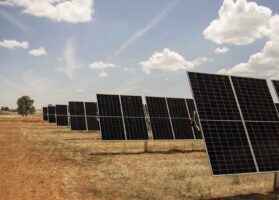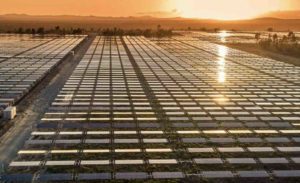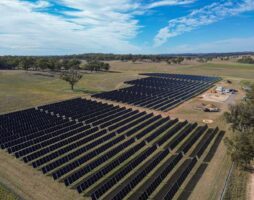In news that will surprise no one, a new report says fossil fuel lobbyists have been using the same playbook to delay the transition to renewables for 57 years.
But the use of this playbook has been ramping up fast since 2005 – and particularly in recent years – as governments around the world begin to take climate change seriously, says the analysis by InfluenceMap.
It points the finger at the American Petroleum Institute (API), FuelsEurope, and Fuels Industry UK who refined three main arguments since 1967, centred around solution scepticism, policy neutrality and affordability and energy security.
The impact of these coordinated assaults is a dilution of climate related policy and a steep rise in cumulative emissions, InfluenceMap’s historical analysis shows.

While these lobby groups were advocating against tighter controls on fossil fuels and support for clean energy, the cumulative emissions of their members between 1950 and 2022 hit 350 billion tonnes of carbon dioxide equivalent.
That figure is about 18 per cent of the total global total cumulative CO2 emissions from fossil fuels and industry since 1750.

“Many oil and gas companies justify their significant scope 3 emissions by pointing to consumer demand, claiming it’s beyond their control,” says InfluenceMap program manager Tom Holen.
“However, this report challenges this narrative by uncovering a strategic playbook designed to protect and sustain the societal and market forces favouring fossil fuels. This long-standing use of misleading narratives has likely delayed the energy transition for decades and continues to pose a serious threat to climate policy progress.”
The fossil fuel playbook
That fossil fuel companies and their lobbyists have been fighting to turn the world against climate science and scientists isn’t new.
In 1998, fossil fuel companies including ExxonMobil and Chevron hired PR consultant Joe Walker to develop a plan to wreck the Kyoto protocol via a global misinformation campaign, using a network of friendly scientists and think tanks to cast doubt on the science.
In 2017, a front group backed by the billionaire anti-renewables Koch brothers launched a video attacking electric vehicles.
Since then, academics have built a case that a global network of companies and wealthy individuals are funding anti-climate campaigns around the world — with the latest being the attacks claiming offshore wind with kill whales.
The InfluenceMap report categorised the types of arguments being used under three headings: solution scepticism, policy neutrality, and affordability and energy security.
The first record of solution scepticism, a narrative that systematically downplays and casts doubt on other energy sources, was in 1967, when Sun Oil and API said the US Clean Air Act that year wasn’t necessary because EVs would one day solve the emissions problem.
In 2023, 56 years after that argument was made, API lobbied the US EPA using the same concept, this time casting doubt on whether industry and infrastructure would be ready in time to meet new emissions standards for heavy vehicles – after decades of lobbying against the development of both.
Policy neutrality is often used to dilute climate policy, such as in 2022 when FuelsEurope lobbied for so-called “low carbon fuels” such as gas to be included in the Energy Performance of Buildings Directive (EPBD), the InfluenceMap report found.
The group claimed that including fossil fuels in the directive would create a level playing field for “the various technological solutions”, and argued that it was making this pitch in the name of ensuring vulnerable households and off-grid communities had access to heating.
Australian fossil fuel lobbyists wield power to devastating effect
Four years ago, InfluenceMap found that Australia’s fossil fuel lobbyists were as equally effective at blocking climate policy – as everyone who can remember the devastation wrecked by opponents of the 2011 carbon tax will know.
The 2020 study showed that three quarters of the groups which took positions against climate regulations had a pro-fossil fuel agenda.
“The results demonstrate that the country’s position as a global laggard on climate is not only due to a lack of political leadership,” the report says.
“It identifies the key industry representatives behind a successful effort to derail Australia’s international climate commitments and highlights the diverse range of tactics and political interventions used to exert undue influence over Australian climate policy and regulations.”
BHP, Rio Tinto, and Glencore, were in the top three in terms of indirect negative impact. Pure-play coal companies Yancoal and Whitehaven, and oil and gas companies Santos, Woodside, and Shell also made the top ten.
At the time, Australia was deep in the COVID-19 crisis and the report says the disproportionate influence of the fossil fuel lobby helps to explain why the federal government at the time rejected a “clean recovery” in favour of fossil-focused economic recovery measures.
Australian lobby and its pro-gas stance
The narratives used in Australia have been more direct, but just as effective by incorrectly claiming that climate science and basic economics backs the continuation of fossil fuel industries.
Fossil fuel companies operating in Australia pushed back strongly on attempts to reference reducing fossil gas demand in Australia’s Future Gas Strategy which was released in May, while strongly advocating for new gas supply and investments.
The strategy also came under attack from Asian companies with an interest in buying Australian fossil fuel exports, particularly from Japan which want the country to ramp up supply and exports.
“Australian oil and gas entities shared this position while at the same time emphasising issues with domestic gas supply, representing a possible contradiction in their advocacy,” the InfluenceMap analysis said in February.
The narratives used in the lead up to that strategy included that fossil fuels align with climate goals, that Australian fossil fuels are needed for neighbouring country decarbonisation, new supplies are needed for energy security and consumer affordability, and that fossil fuel projects are essential to the economy.
The InfluenceMap report debunked these claims, leading with the consistent IPCC refrain that additional fossil fuel supplies mean the world will exceed the remaining carbon budget for 1.5°C.
The remaining points were debunked with analyses by th IPCC and the IEA saying neighbours don’t need fossil gas for decarbonisation, energy security is being met by clean while gas is becoming more expensive, and the fossil fuel industry consistently overstates its contribution to the economy.








